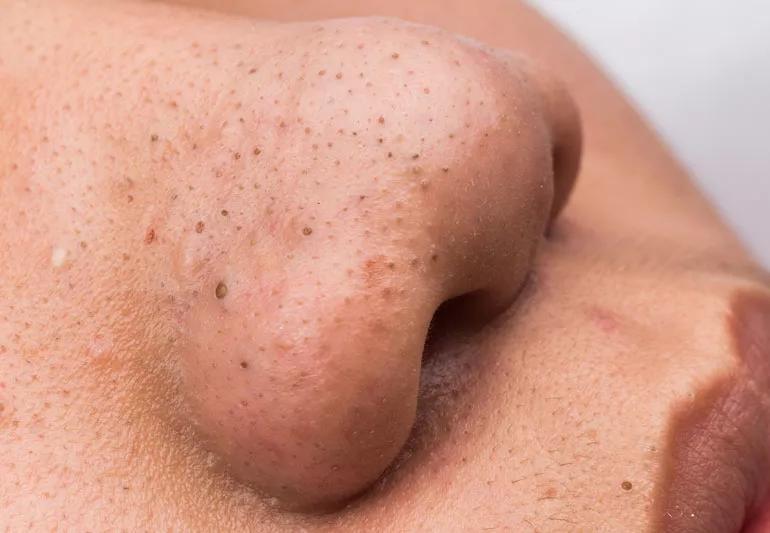The Short Answer from a dermatologist

Image content: This image is available to view online.
View image online (https://assets.clevelandclinic.org/transform/88b58e25-620f-436b-be1c-7271de0a623b/blackheadsSkin-531522177-770x533-1_jpg)
blackheads in skin on face
A: Many think acne is predominantly a teenage condition, but it peaks at two times in our lives. We see a lot of acne in the teen years with the first rush of hormones into the system. But we also see acne affecting people in their 40s and 50s, often around the mouth. Again, later outbreaks are related to hormones (from menopause, for example).
Advertisement
Cleveland Clinic is a non-profit academic medical center. Advertising on our site helps support our mission. We do not endorse non-Cleveland Clinic products or services. Policy
When you come to see a dermatologist, they will assess your acne. If it appears to be hormone-related, we may treat it with hormonal therapy, prescribing common oral contraceptive drugs or a drug like spironolactone. If the acne is severe, we may prescribe oral isotretinoin products.
However, the majority of acne can be controlled with topical medications, including:
Some over-the-counter products that contain alpha or beta hydroxy acids (like glycolic acid or salicylic acid) are also very helpful.
Also, as stress will definitely aggravate any skin condition, modifying the stress in your life as much as you can and adopting healthy stress management habits will help your skin condition.
—Dermatologist Christine Poblete-Lopez, MD
Advertisement

Sign up for our Health Essentials emails for expert guidance on nutrition, fitness, sleep, skin care and more.
Learn more about our editorial process.
Advertisement
Some remedies might help banish breakouts, but others are best avoided
Three reasons to seek help, plus effective treatment options
With repeat injections over time, you may be able to slow the development of new wrinkles
The cosmetic injection may help train your muscles out of frowning, but there’s no hard data to say for sure
Hormone fluctuations impact oil and sebum production, creating painful, tender pimples
Living longer is more than just growing older — it’s also about living life to its fullest
Turns out your health really is in your hands
This medication helps reduce androgen hormones, which produce oil-clogging sebum
Type 2 diabetes isn’t inevitable with these dietary changes
Applying a hot or cold compress can help with pain
Pump up your iron intake with foods like tuna, tofu and turkey